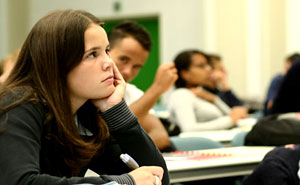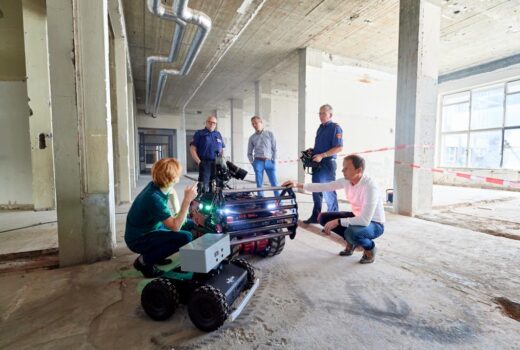Ongelijk onderwijs in Europa

De Eurocommissaris voor onderwijs, Androulla Vassiliou, zegt:”The relationship between gender and educational attainmenthas changed significantly over the past 50 years and differencesnow take more complex forms. Schools are overwhelmingly staffed bywomen, but education systems are managed by men. Most graduates arefemale and most school drop-outs are boys. We need to base genderequality policies on these realities.“
De kernpunten uit de
-Gender roles and stereotypes are the mainconcern
With a few exceptions, all European countries have, orplan to have, gender equality policies in education. The primaryaim is to challenge traditional gender roles and stereotypes. Otherobjectives include enhancing the representation of women indecision-making bodies, countering gender-based attainment patternsand combating gender-based harassment in schools. Governmentinitiatives that aim to inform parents about gender equality issuesand involve them more closely in promoting gender equality ineducation are rare.
Girls usually obtain higher grades and higher pass rates inschool leaving examinations than boys and boys are more likely todrop out of school or repeat school years.International surveys show that boys are more likelyto be poor performers in reading whereas girls are more likely tobe low achievers in mathematics in around one third of Europeaneducation systems. However, socio-economic background remains themost important factor.
Only a few countries address boys’ underachievement as a policypriority (The Flemish Community of Belgium, Ireland and the UnitedKingdom). Still fewer countries have special programmes forimproving boys’ reading skills and girls’ achievement inmathematics and science (Austria, United Kingdom (England).
The European Commission addresses gender inequality in educationboth by encouraging policy co-operation between EU countries andthrough its funding programmes. The fight against social exclusionand gender inequality is one of the key priorities for thefinancial support that the EU gives to multinational educationprojects and partnerships through the Lifelong LearningProgramme.
Gender-sensitive vocational guidance is focused ongirls
Many young men and women in vocational schools and generalsecondary education still opt for career choices reflectingtraditional gender roles. Better vocational guidance is needed toaddress this issue and for career advisers to be more gender awareand thus more able to challenge stereotypes.
Gender-sensitive guidance, which is currently only available inhalf of the European countries, is more often targeted at girlsthan boys and usually aims to encourage girls to choose technologyand natural science careers. Although interesting individualinitiatives and projects exist, overall national strategies tocombat gender stereotypes in career choices and initiatives aimedat boys are lacking.
Policies on higher education focus mainly on increasingnumbers of women in maths, science and technology (MST)
Women represent the majority of students andgraduates in almost all countries and dominate in education,health and welfare, humanities and arts. Men dominate inengineering, manufacturing and construction.
Around two thirds of countries have gender equality policies inhigher education. However, almost all these policies and projectstarget only females. On the other hand, the proportion of womenamong teaching staff in higher education institutions declines withevery step on the academic career ladder. However, only about athird of the countries have implemented concrete policies toaddress this problem to target this vertical segregation.
Policies targeting both issues are present in the Flemish Communityof Belgium, Germany, the Netherlands, Austria, Sweden, the UnitedKingdom and Norway.
Meest Gelezen
Vrouwen houden universiteit draaiende, maar krijgen daarvoor geen waardering
Wederom intimidatie van journalisten door universiteit, nu in Delft
Hbo-docent wil wel rolmodel zijn, maar niet eigen moreel kompas opdringen
‘Burgerschapsonderwijs moet ook verplicht worden in hbo en wo’
Raad van State: laat taaltoets nog niet gelden voor hbo-opleidingen



